#stella Kowalski
Explore tagged Tumblr posts
Text
My initial impression when I watched Eclipse for the first time (and what I still believe) is that Stella knew full well that Ray didn't humilate himself on purpose in the bank when they were kids. I always read it as Stella knowing how embarrased and ashamed Ray would feel for having wet himself, and instead of trying to console him and tell him that it was okay, she let him be the hero instead. Because even though in Ray's memory he thought that he was being 'John Lennon, James Bond, Joe Namath, all rolled into one', I don't think Stella actually fell in love with an illusion at all. Like Fraser said, 'I am willing to gamble that Stella looked beyond that one incident and saw the whole person'. I think she always saw Ray for who he really was, but Ray's own insecurities about himself made him believe that she had to be with him based on a lie. I think the person who doesn't see Ray clearly is Ray himself. He has such a low sense of himself that he can't imagine her falling for anything but a con. He can't imagine that Stella simply fell in love with little Ray Kowalski, because who the hell is even is that? He's convinced himself that he's been playing the part of 'the hero' all these years that he doesn't really see that he has actually become one. The person who recieved all those citations that Fraser recounts wasn't a lie or a con, it was Ray Kowalski, a good policeman, someone who one would be proud to call a partner and a friend. In my opinion Ray's biggest con was conning himself into believing he isn't good enough just the way he is.
#due south#stella kowalski#ray kowalski#anyway this is why the depiction of stella in some fics of being historically embarrased by ray over the years has always rankled me#she wouldn't have stayed with him since she's 13 if he was a constant source of embarrassment#she truly loved ray for ray#she just sadly ended up outgrowing the relationship eventually#and i think ray tied so much of his identity to stella for so long which is why he struggled so much to let go of her#lol i just wanted to write a little thought about stella and it ran away from me a bit. this is why i don't do meta stuff. i tend to ramble#i just hope i made sense#ds30below#<- oops forgot to tag
73 notes
·
View notes
Text






due South | Text Posts Part 5
[One] [Two] [Three] [Four] [Five]
#due south#benton fraser#ray kowalski#paul gross#meg thatcher#harding welsh#Diefenbaker#stella kowalski#my text posts
20 notes
·
View notes
Text
Blanche DuBois Stimboard!









× × × / × 💡 × / × × ×
"They told me to take a street-car named Desire, and transfer to one called Cemeteries, and ride six blocks and get off at—Elysian Fields!"
#blanche dubois#stella dubois#stella kowalski#stanley kowalski#harold mitchell#a streetcar named desire#streetcar#/#tw alcohol#cw alcohol#tw gambling#cw gambling#gambling#flash warning#tw flickering#cw flickering#flickering#tw smoking#cw smoking#smoking#//#bathing#poker#alcohol#cigarette#light
10 notes
·
View notes
Text
The fact that there's a version of the play "A streetcar named desire" with Rachel Weisz as Blanche and Ruth Wilson as Stella and that I can't find it anywhere keeps me up at night actually
53 notes
·
View notes
Text
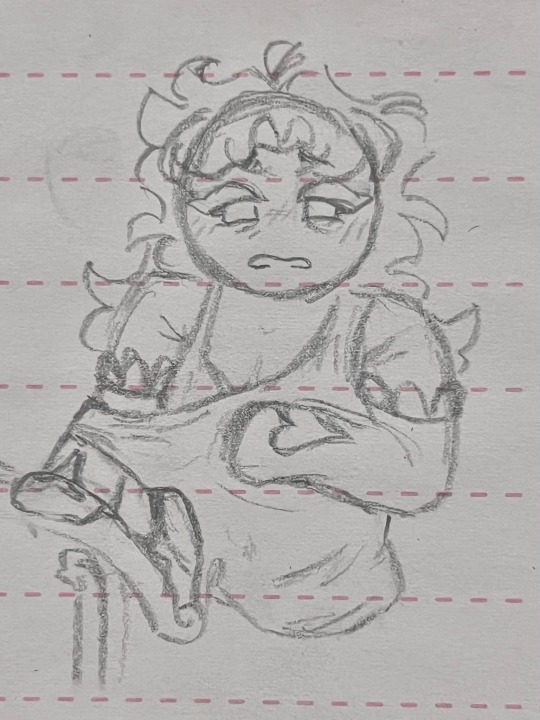

"She didn’t know what she was doing ...
"She was as good as a lamb when I came back and she's really very, very ashamed of herself."


what's toxic yuri if it isn't based off of a toxic hetero story from the 1950s?
#crk#cookie run#cookie run kingdom#crk fanart#hollyberry cookie#golden cheese cookie#hollycheese#toxic yuri#a streetcar named desire#stanley kowalski#stella kowalski#stella dubois#kaardoodles
30 notes
·
View notes
Text
I really really hate re reading streetcar named desire for English. don't get me wrong, its extremely interesting but I feel so bad for Blanche and seeing Stanley just get off with no consequences makes me extremely angry. Like I know Blanche has done her share of mistakes and bad deeds but she suffered so much for it while Stan he's just happy. I keep looking for that one fic where Stella leaves Stanley and supports Blanche but that's impossible to find. It's a good story but I want one version where she's happy
#a streetcar named desire#English literature#ramblings#Blanche Dubois#Stella Kowalski#stanley kowalski
4 notes
·
View notes
Text


Decided to doodle this lovely A S STREETCAR NAMED DESIRE playbill poster ater almost 20 years without drawing. It’s my homage to my favorite play!!!
#tennessee williams#a streetcar named desire#books#literature#American theater#blanche dubois#stanley kowalski#stella kowalski#new orleans#belle rêve#tarantula#flamingo#vivien leigh#marlon brando
5 notes
·
View notes
Text
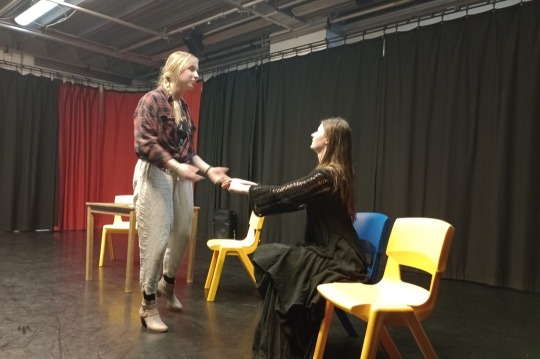

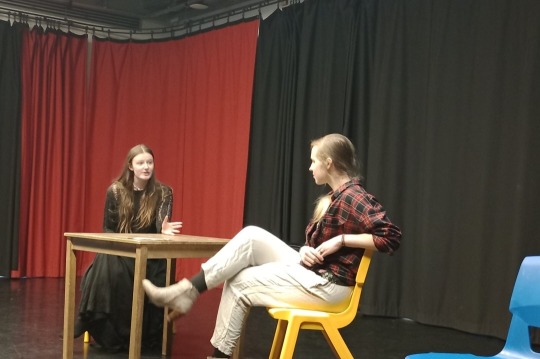
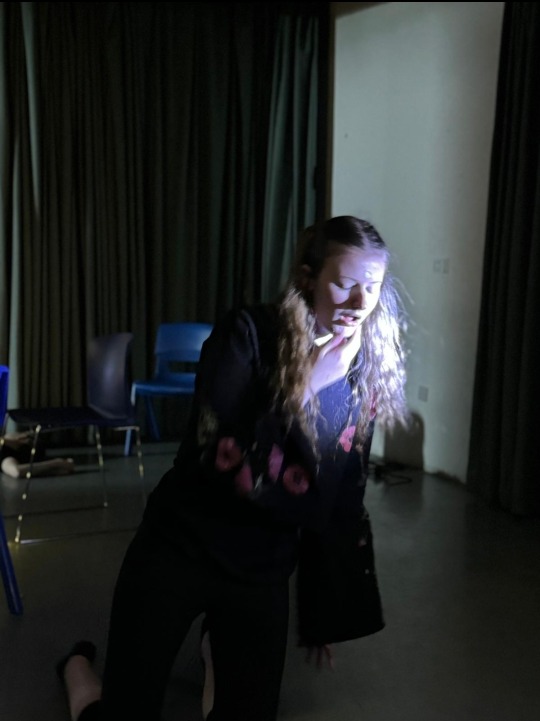


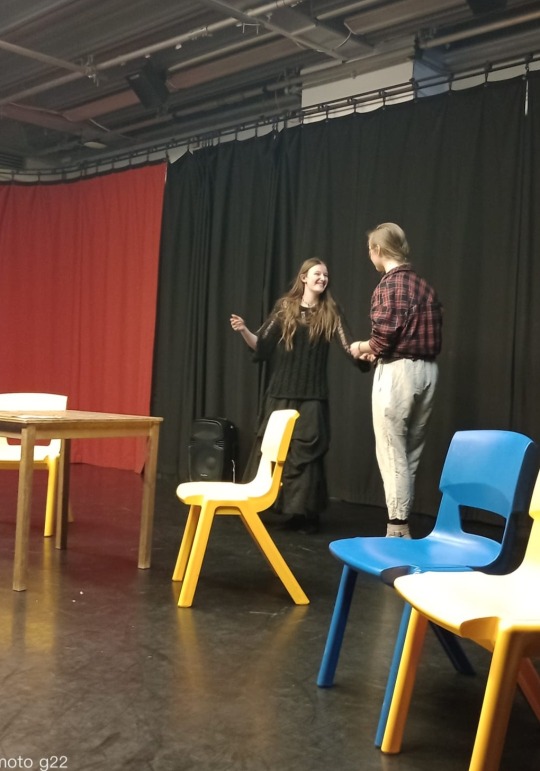



Theatre Playground vs Straight Acting
@maryxschuyler the Stella to my Blanche 💞
Martin said we couldn't post videos on socials but he said nothing about pictures also I think Tumblr doesn't count as it is simply a deep dark void so it should be fine
Also peep the violin wrist I don't think I'll ever do anything better than that in my life icl.
#a streetcar named desire#blanche dubois#stella kowalski#acting#actor training#east15#conservatoire#drama school#violin#theare playground#one day that tag will be full and I can't wait for it#ramiro silveira#you will always be famous to me
3 notes
·
View notes
Text

Stella wants a sweet goodbye and Ray is staring at Fraser.
Yeah.. she knows.
#due south#benton fraser#ray kowalski#fraser/rayk#stella kowalski#Ray Kowalksi's actions don't match his words#on the inside he's a poet#on the outside#shake bad guys shake#i am so sorry for the terrible quality
51 notes
·
View notes
Text
Stella Kowalski
Reblog this and put in the tags which character in due South you'd let say the only 'fuck' allowed in the show
70 notes
·
View notes
Text
Nothing makes me nope out of a due south fic faster than reading an unfair characterization of Stella. It doesn't matter how well written the rest of the fic is, I can't stand when Stella is portrayed as some heartless bitch who treats Ray badly for no reason. As much as I love RayK (he's my fave) I can admit his behavior with Stella is not him at his best. I mean we meet Stella in the episode where Ray is stalking her, and I think there's enough of an implication that it isn't the first time. It's not cute, it's not endearing. I can have sympathy for Ray's struggling to let go of the relationship he's been in since he was a kid, but it's not Stella's job to protect his feelings. She's made herself more than clear that there's no hope of reconciliation but Ray won't accept it. It's completely understandable that Stella would get fed up with Ray's persistence and feel the need to be a bit harsh in shutting him down.
#due south#stella kowalski#i have a lot of feelings about this character i guess#perhaps i over identify with her situation#to be clear i haven't seen an abundance of Stella bashing but when i do see it it makes me so mad#she did nothing wrong
27 notes
·
View notes
Text


the way Ray looks at Fraser at the end of Eclipse >>>>>>>>>
#due south#benton fraser#ray kowalski#fraser/rayk#otp: there's no ships like partnerships#fraser/kowalski#my gif edit#sammaggs gif edit#this is where the crush starts imo#he’s still getting over Stella but this is where he’s like#okay damn there’s a man behind that Mountie#and also#he’s kind#and a babe#3x02 eclipse
77 notes
·
View notes
Text
release, revolve, renew (due South fic)
Fraser/Kowalski + Vecchio/Stella, rated G; 3396 words
Summary: "You see someone every day for long enough, you think they never change. And then it's just—glimpses, and when you get a chance to look, they're a different person."
A/N: Written for @feroxargentea as part of @duesouthseekritsanta 2024. Thanks to @gueule for second opinion and support on this one!
read on AO3
About half an hour into their second date, Stella's eyebrows draw together and her eyes narrow for just a moment, but it's enough for Ray to swallow the rest of what he was saying. "I—Sorry. Was it something I said?"
"What?" she asks, distracted despite staring right at him.
"You looked—nevermind." He puts his fork down and reaches for his drink. The restaurant he picked is classy, but not obnoxiously so. He's had enough of lavish rooms used as extra muscle, of reaching for obscene bills to prove you're the one in control. It's easy to tell work stories here, Fraser stories. Like slowly shaking off a shell until he can recognize himself.
She recovers quickly and gracefully, mirrors him and picks up her wine, gives him the kind of smile that makes it clear he's not in on the joke. He wants to see it again and again, a hundred times.
"No, go on," she says, watching him over the rim of her glass, not quite assessing. "You have a good voice."
He preens, unable to hide it. Just two weeks back, he wouldn't have guessed any of it. He feels good, hopeful, for the first time in—too long to remember.
It's only later, unpacking at the new apartment, that he learns what that was all about.
"When are you gonna tell Kowalski?" he asks, carefully fishing out wine glasses from between packing chips.
Stella snorts. "You're good at delegating, aren't you?"
Ray shrugs. "I know squat about him, you've spent a decade married to the guy."
"Exactly. You know, the way you talk about Fraser—put some things into perspective for me," Stella says, gathering her hair up. "You talked about him a lot, back when you took me out the first couple times."
"You don't like him much, do you?" he asks, and she looks surprised. Hey, not like she's the only sharp one here. She hums in a way he's learned means let's get back to this later. "He was—he's my best friend," he says. Now that she's pointed it out, it's suddenly urgent to him that she knows it, the way Fraser gets under your skin, the way he just happens to you until you're changed by it. The way you don't want to let go.
"I know. It wasn't about Fraser. Or you, really," she says, and he doesn't know whether to be offended. She stares thoughtfully into the open cupboard. "I just don't think Ray—Ray Kowalski—anyway, it's not important. Write Fraser a letter." She elbows him out of the way, picks up the glasses and starts carefully arranging them on the shelves. "Bet you a hundred Ray's gonna read it too."
Ray feels like he's missing something here, but he also knows there's no danger in conceding this. She isn't gonna keep whatever she means from him for long. She takes her time taking things apart in her head; Ray likes it about her, that thoughtful focus, the need to get it right. She gets Vegas right, and that's more than he'd thought to ask for.
*
It's a lucky thing, really, that when the call comes at the Vecchio house, Ray is the one to pick up.
"Hello, Ray," Fraser says, so antsy the wire does nothing to hide it, and Ray did not expect this at all.
"Benny! It's good to hear your voice," he says, with a vague sense of déjà vu, hearing the confusion in his own words.
"And yours, Ray. I, well—"
"Raimundo!" Ma calls from the table, so loud he can barely hear Fraser over it. "Who is it?"
"Hang on a minute," to Fraser. "Fraser!" to Ma, covering the phone with his hand.
"Oh! Oh, how is he doing? When does he get back? Ask him—"
"I don't know," he yells, louder, "and I won't know unless you let me talk to him!"
"Well, tell him to come to dinner! Both of them!"
"Jesus! I will! Now let me talk!" He takes his hand off the phone. "Sorry, Fraser. You know how it is."
He hears loud snickering, clearly not Fraser's. Fraser makes a vague shushing noise. "Please tell Mrs Vecchio I'm very grateful for her rather, ah, enthusiastic invitation"—Ray snorts—"and that we'll be looking forward to that dinner."
It takes a few seconds for it to sink in: Fraser is coming back. With Kowalski. He was almost ready to bet on the opposite, on not seeing either of them for at least a few years, and now the presumption feels awkward.
"So," he says, "who did you want to talk to?"
"Well, you, Ray. I did call your house, didn't I?"
Shit, Fraser didn't really keep up to date up there. "You didn't get my letter, did you?"
"Oh—well, I suppose we did have to make some swift changes in our route near the end, and given the short notice, it's only natural that the post offices could not keep up, really—"
"Yeah, yeah," Ray waves him off. "I'll tell you when you get here. When do you get here, anyway?"
"Friday at four." An awkward pause. "I was actually calling to ask if you can pick us up, at the airport."
Ray is confused for a minute. Kowalski can drive—that much he has evidence of, what with his car being pretty successfully driven into a lake—and would probably insist on driving. Then he places the feeling of déjà vu, of talking to Fraser about airports and trains from far away, and feels so relieved he could break into song. "Jesus. Of course. I'll be there."
*
He finds a spot to park, pops his sunglasses on against the May sun glare and heads inside. He's early, and he's nervous. This feels like a do-over, and it's the first time he lets himself consider where he and Fraser stand now. He's not very successful. But hey, after all, he's here because Fraser asked.
It's Kowalski he sees first at the baggage claim, though, and Kowalski spots him right back, his shoulders squared defensively, a sight so oddly familiar it's impossible to miss. Fraser bends his head close to Kowalski's to be heard over the hum of the crowd and the loudspeakers, and he can practically hear the be reasonable tone Fraser uses that only makes you want to become more unreasonable. He shakes his head and gets up to meet them.
Fraser gives him a bear hug, and Kowalski doesn't bite his head off on the spot, actually thanks him for coming.
"Where can I drop you off?" he asks, starting the car.
"My place," Kowalski says, short, and throws a quick sideways glance at Fraser where he's crammed next to him in the backseat.
Ray nods and meets Fraser's eyes in the mirror. "Benny?"
"Oh, well," Fraser says and trails off, playing with the hem of the Stetson.
"I meant both of us," Kowalski says in a tone he probably thinks sounds gruff and holds Ray's gaze, expectant.
Ray shrugs, makes a mental note to tell Stella and pulls out of the parking lot. He feels like a gossiping schoolgirl and finds he doesn't mind. "Cool. Now if you're done shooting lasers outta your eyes, some directions would be nice."
*
"How is he?" Stella calls from the bathroom. Ray puts down the thin stack of house listings she printed out for him and looks at her in the mirror, watches her fingers as she swipes some cream on the tender skin under her eyes.
"Which one?" he asks, partly because he doesn't know, partly to get a rise out of her.
"Well, which one were you so wound up about?"
He gives it a serious thought. "Fine, I guess. Good. Both of them." It's unpleasant to admit he can't quite tell more than that. Fraser has never been too easy to read, but with Kowalski nearby and the whole world rearranging itself since they were actually close, Ray is less than fluent. "Why don't you come with? To Ma's dinner. You can judge for yourself."
Stella snorts and screws the lid back on the jar. "Like I can get out of it. No, I like knowing what you think."
"I think you need to come to bed. Gonna complain about not getting enough sleep tomorrow anyway."
"Shut up," she mumbles, warm and already halfway to asleep as she rests her head in the crook of his elbow.
*
Next time he sees Fraser, Ray's sitting on Welsh's couch, waiting for Stella to get out of whatever fiasco Fraser must've created to warrant her presence at the station in the first place.
"So, uh, does this mean Fraser's back to work?" he asks, when the i's are mostly dotted in his own retirement plans and Welsh gives him a hearty handshake.
Welsh sits back and stares at him like he's an idiot. "I would imagine so. Otherwise I have a vigilante running around with one of my detectives and a demotion coming. Don't you two talk?"
That stings a bit. "We, uh, haven't had a chance to catch up lately."
Welsh gives him a look that clearly says cut the crap and get on it.
He shrugs. "It's been a busy few months."
That's when he sees Fraser and Kowalski walk in, and he can't hear them through the door and the noise of the bullpen, but it's obvious Kowalski's worked up, hands flailing, getting right in Fraser's face. Fraser's playing the long-suffering card, and whatever they're arguing about, Ray definitely gets Kowalski here. But then Kowalski's face is white, not flushed from all the ranting, and he puts his hand on Fraser's shoulder and keeps it there even after he's given him a good shake, so maybe Ray doesn't get all of it.
"What did he do this time?" he asks Welsh, eyes still following them around the room.
"If I had to bet, I'd say our fair Constable either apprehended someone he shouldn't have, or ignored someone he should."
Ray nods. "And he still doesn't carry a gun."
"And he still doesn't carry a gun."
The door opens unceremoniously, and Stella walks in, tired and annoyed. "Lieutenant," she says, "I'd be grateful if next time you try to explain to Ray that not everything Constable Fraser says or does should be immediately followed by an arrest".
Ray chooses the monologue as cover to slip out of the office and find Fraser. Kowalski's wandered off, so he jumps at the opportunity. "Hey Benny," he says, "got any plans for tomorrow evening?"
"Not that I can recall," Fraser says, beaming. "What did you have in mind?"
Ray hesitates. "Whatever you're up for. Can't remember the last time you hung around for more than ten minutes at a time."
Fraser opens his mouth and closes it a couple times before he finds his words. "I'm sorry if I've given you the impression—that is—"
Ray has mercy on him. "Yeah, yeah, Kowalski couldn't spare you, could he? I get it."
Fraser looks genuinely offended, but Ray suspects it's not directed at him. "Well, he can definitely 'spare me' tomorrow. And he'll have Diefenbaker to keep him company."
"What, the wolf too good to hang out with the old gang now?" Ray laughs.
"Well, no, but he and Ray are going to see—a car exhibit."
"A car show? How come you aren't invited?"
"Oh," Fraser says, pursing his lips, "apparently, Diefenbaker appreciates it more."
Ray snickers. "Kowalski said that?"
Fraser actually sighs. "Well, Diefenbaker didn't deem it important to tell me himself, did he now?"
Ray shakes his head. "Never change, Benny."
He sees Stella emerge from the office and raise her eyebrows at him.
"Look, I gotta head out. I'll call you about tomorrow, okay?"
"I'm looking forward to it, Ray," Fraser says with genuine pleasure.
Ray watches him cross the room to Kowalski's desk, place a hand on Kowalski's neck, sees Kowalski close his eyes for a moment and roll his head, working out a kink Ray knows you get after about five minutes of staring at the papers. The gesture is familiar—he does that with Stella all the time.
"Home," Stella demands, "come on, stop gawking," and drags him out by the elbow.
"Home," he agrees.
*
He and Fraser end up stuffing their faces with burgers and shooting some pool. Fraser downs a beer, too, and Ray imagines him and Kowalski doing this up north, in some homey place in a city of several hundred, on their way back from the tundra—how else would he get Fraser to relax this much?
Fraser talks some about going back to work, a lot about Canada, and an uncomfortable amount about Kowalski. Not directly, but the guy is ever-present in the background of every anecdote, every plan Fraser mentions. It finally hits Ray, what Stella was getting at. He makes a mental note to ask if he sounded like this to her—but no, the clue was the fact that he didn't. It wasn't about you, really. Fraser doesn't just mention Kowalski a lot. He talks like he has never not known him, never been alone, which Ray knows couldn't be further from the truth. He talks about Kowalski like that's where he belongs. And he's back in Chicago. Ray guesses that's that and returns the favor.
"So, uh, about that letter."
"Oh, I'm sorry, Ray. If it was in my power—"
"Benny, shut up and let me finish." He drains the rest of his second bottle. "So, Stella and I are getting married in August. And, uh, we're looking at houses. In Florida."
Fraser doesn't miss a beat. "Well, Ray, that's wonderful! Congratulations to you and Ms Kowalski—or, ah, I suppose that's not the appropriate address anymore."
Ray narrows his eyes. "You don't like her much, do you?"
Fraser tugs on his ear. "Ms Kowalski is a woman worthy of great respect and admiration, and I'm sure you're well-suited for each other." Which is a very roundabout way of saying I'm happy for you, but I don't get it at all. Ray kind of gets the sentiment. He's always found Stella's coldness towards Fraser curious, but now, when he knows it's returned, the common denominator is obvious.
"Hey, same to you and Kowalski. Jury's still out on admiration, though." Fraser doesn't blush, but his eyes go wide. Ray shrugs. "C'mon, Benny. It's not a state secret," he says, like the pieces didn't fall into place for him two minutes ago.
Fraser clears his throat, twice, but the corners of his mouth curl up. "Are you planning to join the department in Florida, then?" he asks and reaches for the check, clearly for something to do with his hands. Ray relaxes into his seat and lets him get it, figures Fraser owes him for not doing this whole hanging out thing sooner.
"Nah," Ray says, shrugging. "I think I've paid my dues with the force. It's been great. Some parts more than others." He gives Fraser a meaningful look, watches him smile.
"In that case—it's been a pleasure, Ray," he says and reaches his hand out for an actual handshake. Jesus. Ray rolls his eyes.
"Come on, I'm not saying goodbye. You'd better come see us down in Miami. We'll have enough room for two more."
Fraser grins, like he can't help it, then frowns immediately. "Should I, ah, tell Ray, or..." He trails off, awkward as ever when it comes to navigating tempers and touchy subjects. Ray has to admit he isn't feeling any more confident.
"Nah, Benny. Leave it to Stella. It's their business more than yours—or mine, you know?"
Fraser nods solemnly. Ray gives him a wink.
*
"It was good. He's good." Ray says, chopping the carrots. "It's weird, you know. Not that I don't know him anymore, just"— he shrugs—"different."
Stella hums absently and reaches across the kitchen island to pick up a piece of carrot. "You see someone every day for long enough, you think they never change," she says between bites. "And then it's just—glimpses, and when you get a chance to look, they're a different person."
He looks at her, head bent, reading glasses sliding down her nose, papers spread in a wide half-circle in front of her. Bare legs under the hem of her skirt, one crossed over the other, right foot swinging mindlessly. He's only been seeing her every day for a couple of months, and he does kind of think she will never change, not in a way where one day he looks up and doesn't recognize her.
"Not completely different," he says, adding the carrots to the pan.
Stella looks at him sharply over her glasses. "No, not completely."
*
Dinner is dinner. Doesn't matter what they're celebrating, it's always loud, and Ray doesn't know what half of the guests are doing there, and it takes two wine glasses to get the pinched expression off Stella's face.
When it gets too stuffy for him to handle the table anymore, he comes out on the back porch, and there Kowalski is, sitting on the steps, beer in hand, shoulders down and relaxed for once.
Ray sits down next to him. Kowalski gives him a look he can't quite read. Nowhere near hostile, though. "So," he says. "Florida, huh?"
"Chicago, huh?" Ray returns, smiling.
Kowalski looks down and is silent for a long time, long enough for Ray to groan internally and write the conversation off as a failure. But Kowalski says, "It's queer, you know. We didn't—have a whole thing about it. Just got two tickets, and that was that."
Ray nods. He already got how whipped Fraser is, but it still comes as a bit of a surprise that it was that easy, with Kowalski wound tighter than a spring when the Muldoon case went down.
"It's harder being friends with him when you're not running around trying to protect his ass, you know," Ray offers.
Kowalski snickers. "You say it like it's easy when you are."
"Well," Ray says, takes a second to think, "he can't be anything else, can he? At least when you're there all the time, you know. You know each other."
"Yeah," Kowalski says. "Guess so." He's staring into space, chewing on his nail, and Ray guesses it took way longer than it should have for him and Fraser to get where they stood.
"Oh, hey." Kowalski perks up, reaches into his back pocket. He gives Ray a slip of paper with some numbers in wonky block capitals.
"This better not be a shrink," Ray says, unfolding it, and Kowalski snorts, then suddenly looks down and scratches the back of his neck, bashful.
"Nah. At the show the other week, this guy—anyway, since I crashed your ride and all... well, call it. And, uh, call me if you need a hand with it."
Ray blinks in disbelief. At this point, he figured keeping a Riv was more trouble than it's worth. "Well, shit. Never expected you to be this sentimental."
Kowalski starts to smile, slow and delighted. "That's because you're not running around trying to protect my ass all day."
And then there's Fraser's voice calling out from somewhere in the house—"Ray!"—and when Kowalski turns his whole body instinctively at the sound, eyes bright, there can be no mistake whose name it is.
When it's finally dusk, and the air is getting too cold for lingering in the yard, Ray goes back in. The house is mostly empty and it's just Ma and him and a couple of late guests he isn't sure he recognizes passing him by in the hallway with goodbyes. The radio is on in the kitchen, slow notes, quiet strumming, and he can hear Stella hum softly over the quiet clinking of dishes and water splashing.
In the dark, finally empty living room to his left, he catches movement out of the corner of his eye, and when he turns to look, there's Benny, shuffling around slowly in an approximation of a dance, Kowalski's blond head on his shoulder, arms around each other.
He watches them for a moment, barely illuminated by the hallway light, then turns away and goes to help Stella with the dishes. He figures they've all got nothing but time.
#my writing#due south#fraser/kowalski#fraser/rayk#f/k#vecchio/stella#benton fraser#ray kowalski#ray vecchio
21 notes
·
View notes
Text



I've literally been waiting years to see Choi Yoonjung again, and when they showed her in the crowd supporting her sister at the I-LAND 2 finale, I went full Stanley Kowalski.*
*I've never actually seen Streetcar, so I hope I didn't just say something dirty.

(Watching the show live, I would've sworn these girls' signs said they were cheering for Choi Yoonjung. The letters (최윤정) are all there, just in a slightly wrong order, and I'm only so good at reading Hangul quickly.)
#I-LAND 2#Yoonjung#Choi Yoonjung#Stella Choi#A Streetcar named Desire#Stanley Kowalski#Marlon Brando#gif#TV#Movies#I-LAND 2 episode 12#Jungeun#Choi Jungeun
4 notes
·
View notes
Text

Bring your walls to life. Visit the webshop chungkong.nl today!
Disturbed Blanche DuBois moves in with her sister in New Orleans and is tormented by her brutish brother-in-law while her reality crumbles around her.
Director: Elia Kazan Stars: Vivien Leigh, Marlon Brando, Kim Hunter
#street#car#named#desire#Blanche#Stella#Vivien#Leigh#Marlon#Brando#New#Orleans#Stanley#Kowalski#Tennessee#Williams#minimal#minimalism#minimalist#movie#poster#film#artwork#cinema#alternative#symbol#graphic#design#idea#chungkong
2 notes
·
View notes
Text
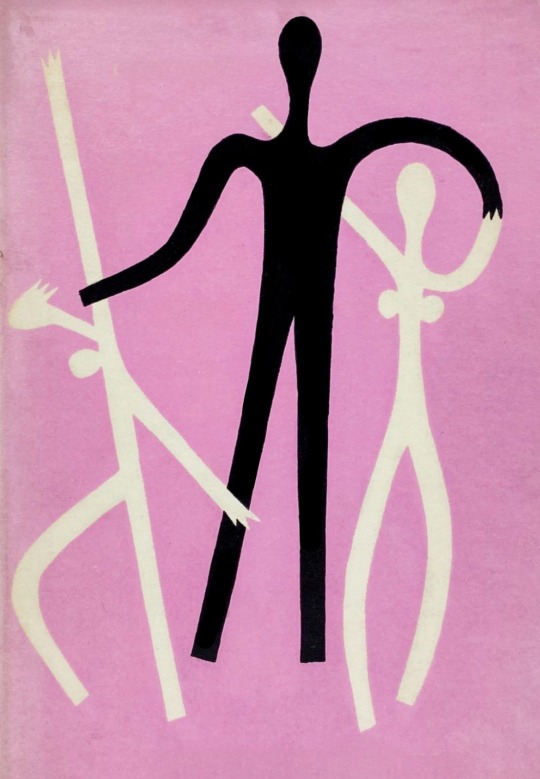
A Streetcar Named Desire (1947)
#streetcar#literature#tennessee williams#vivien leigh#marlon brando#a streetcar named desire#stanley kowalski#Stella#blanche dubois#flores#new orleans#magic#realism#theatre#American play#drama#southern gothic
11 notes
·
View notes